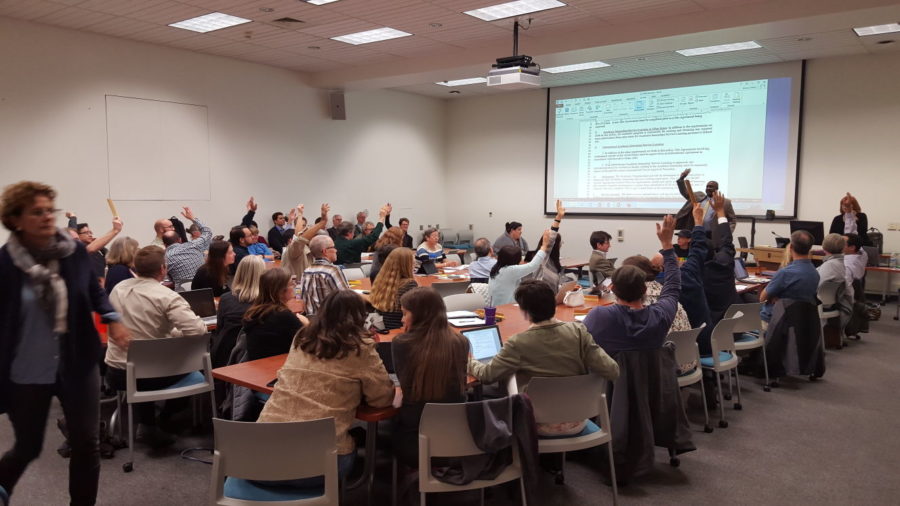Faculty Senate discusses internship policy
Sacramento State Faculty Senate in the discussing the wording of a new Academic Internships and Service Learning Policy on Nov. 12, 2015.
November 18, 2015
Sacramento State’s Faculty Senate met on Nov. 12 in the lower level of the library to discuss student internship and faculty office hour policies.
The Senate was unable to reach an agreement on the wording of the academic internships and service learning policy, voting after a long debate to table discussion until the senate reconvenes in December.
Sac State received an executive order from the CSU Chancellor’s Office asking them to write and implement this policy in Sept. 2011.
“We are five years behind in terms of implementing executive order 1064,” said Donald Taylor, interim assistant vice president of Academic Programs and Global Engagement. “We are in serious danger with the Chancellor’s Office for lack of implementation of an executive order.”
According to the executive order from 2011, which came from former Chancellor Charles Reed, the policy should “maximize the educational experience while mitigating the risks to participants and minimizing the university’s liability exposure.”
Also on the agenda, Sac State Police Chief Mark Iwasa gave a speech encouraging faculty to register for the university’s Emergency Notification System.
“So if you haven’t affirmatively registered yourself,” Iwasa said, “texts, phone calls to your private cell phone – you’re not going to get it.”
In a Q&A session after his presentation, Iwasa asked the Senate if they had questions about the police department overall.
“The policy is written, but there are issues with the implementation of it,” Iwasa said. “It affects employees, and when some of them were hired, smoking was okay… There needs to be a discussion around that.”
The Senate voted to amend the faculty office hours policy to allow departments to give more explicit office hours expectations for faculty teaching online or hybrid courses. The wording of the policy was also adjusted so it would be applied to faculty based on appointment and not by number of units taught.





























































































































